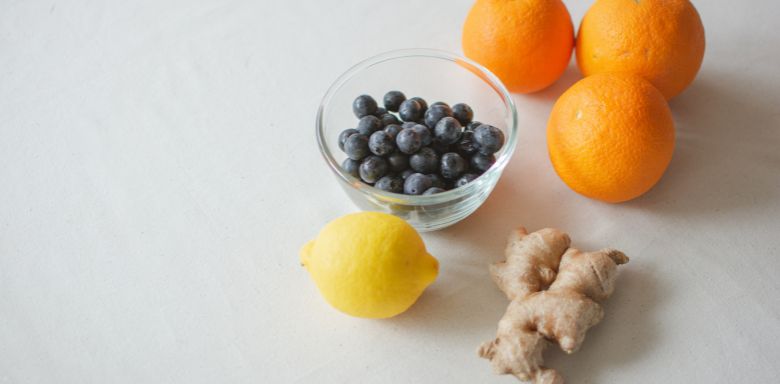Eat These Supplements and Foods for a Healthy Gut
A healthy gut is the foundation for better digestion, stronger immunity, balanced mood and even improved energy levels. The good news? You can nourish your gut with the right combination of targeted supplements and whole foods. Below, we’ll explore some of the most effective supplements and foods for a healthy gut.
1. Emma
Emma is a plant-based supplement featuring a unique blend of natural compounds such as deglycyrrhizinated licorice (DGL), star anise, quercetin, berberine, chicory root inulin and resveratrol. Together, these ingredients help soothe, protect and strengthen the gut.
DGL helps calm irritation in the digestive lining, while star anise stimulates bile flow for smoother digestion. Quercetin works to tighten the gut barrier, preventing unwanted particles from leaking into the bloodstream. Berberine supports a healthy microbiome and can help balance blood sugar and cholesterol. Chicory root inulin acts as a prebiotic, feeding the good bacteria, and resveratrol boosts beneficial species like lactobacillus and bifidobacterium while helping maintain gut lining integrity. By tackling multiple factors at once—motility, microbiome balance and gut barrier health—Emma offers a well-rounded approach to better digestion.
2. Probiotic Supplements
Probiotics are live beneficial bacteria that restore balance to the gut flora. They can ease bloating, improve bowel regularity and even help your immune system function more effectively. Strains like Lactobacillus rhamnosus GG and Saccharomyces boulardii are particularly well studied for supporting IBS, diarrhea recovery and overall gut resilience.
You can take probiotics in capsule form, but they’re also found in foods such as plain yogurt with live cultures, kefir and certain aged cheeses like gouda. Fermented vegetables, such as sauerkraut and kimchi, are rich natural sources as well.
3. Prebiotics
Prebiotics are fibers that serve as food for the healthy bacteria already living in your gut. When bacteria digest prebiotics, they produce short-chain fatty acids like butyrate, which strengthen the intestinal wall and reduce inflammation.
Common prebiotic-rich foods include garlic, onions, leeks and asparagus. Jerusalem artichokes are one of the most concentrated natural sources. Bananas—especially slightly underripe ones—provide resistant starch, which acts as a prebiotic. Whole oats, apples, flaxseeds and barley also feed beneficial bacteria and keep digestion moving smoothly.
4. Digestive Enzymes
Digestive enzymes help break down carbohydrates, proteins and fats into smaller, absorbable components. This can reduce bloating, gas and heaviness after meals, especially for people who struggle with low natural enzyme production.
While you can find enzyme supplements, you can also boost intake through food. Pineapple contains bromelain, an enzyme that breaks down protein, while papaya is rich in papain, which has similar benefits. Eating these fruits fresh, particularly before or after a protein-heavy meal, can be a gentle way to aid digestion.
5. L-Glutamine
L-glutamine is an amino acid that acts as a primary fuel source for the cells lining your intestines. It helps maintain a strong gut barrier, reducing the risk of “leaky gut.” Powdered glutamine supplements can be mixed into smoothies or water, but you can also get it from foods such as chicken, turkey, fish, eggs, spinach and cabbage.
6. Ginger
Used for centuries as a digestive aid, ginger helps reduce nausea, stimulate digestive enzymes and calm inflammation in the gut. Fresh ginger tea, grated ginger in stir-fries or adding it to smoothies can all be easy ways to work it into your routine.
7. Peppermint Oil
Peppermint oil relaxes muscles in the digestive tract, making it a popular remedy for bloating, abdominal cramps and IBS discomfort. Enteric-coated peppermint oil capsules are the most effective supplemental form, but drinking peppermint tea after meals can also help.
8. Vitamins D and C
Vitamin D plays a role in regulating the gut microbiome and maintaining immune balance. You can get it naturally from sunlight, fatty fish such as salmon and mackerel and fortified dairy or plant-based milks. Vitamin C, found in citrus fruits, strawberries, kiwi, bell peppers and broccoli may support healthy gut bacteria and reduce inflammation.
9. Whole Foods That Naturally Support Gut Health
A gut-friendly diet isn’t complete without fiber-rich plant foods. Legumes like lentils, chickpeas and black beans help feed gut bacteria and promote regularity. Whole grains—brown rice, quinoa and oats—add both soluble and insoluble fiber. Nuts and seeds, especially almonds, walnuts, chia seeds and flaxseeds, offer prebiotics and healthy fats without causing digestive strain for most people.
Fermented foods deserve a special place at the table. In addition to yogurt and kefir, try miso paste in soups, tempeh in stir-fries and kombucha as a refreshing drink. Each provides a unique range of beneficial microbes.
Colorful fruits and vegetables supply polyphenols—plant compounds that beneficial bacteria thrive on. Blueberries, raspberries, pomegranates, spinach, kale and red cabbage all fit the bill. Even herbs and spices like turmeric, rosemary and oregano contribute compounds that can positively shape your gut microbiome.
Improve Your Gut Health Today
Improving gut health doesn’t have to be complicated. Using supplements and foods for a healthy gut helps create a thriving environment for your microbiome. Over time, this balanced approach can reduce digestive discomfort, improve nutrient absorption and support your overall well-being—from the inside out.
Keep reading to learn how to manage your cholesterol levels.
